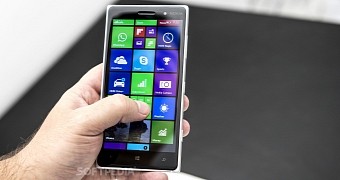Microsoft announced Android apps support in Windows Phone in late April, but shared few details on how developers will be able to port their apps and how users will be able to download them.
In an interview for TechRadar, Microsoft's Kevin Gallo sheds some light on how Android apps will work on Windows 10 for Phones and what it really means for developers to be able to port their apps to Windows Phone.
First of all, according to him users will get applications from the Windows Phone Store rather than from Google Play. Also, these applications won't use Google services at all, so developers will have to switch to other services like Microsoft Ads and App Insights when porting their apps to Windows Phone.
Porting an Android application to Windows Phone will only require developers to switch Google services with Microsoft's, so there will be “zero or very little modification” by devs.
Additional Microsoft services will be added to Project Astoria, which are meant to replace Google services. In the end, developers should be able to switch to Bing Maps instead of Google Maps, Xbox Live rather than Google Play, and Windows notification service instead of Android push.
However, those applications that are strongly integrated with Google services will not work well on Windows Phone. According to Gallo, Android messaging apps will have issues on Windows Phone platform, but in the end “it also comes down to performance.”
Android apps ported should offer better performance and battery life
When Windows 10 Mobile launches this fall, users will be able to run Android applications. Microsoft has already confirmed that Windows 10 Mobile comes with an Android subsystem which will probably be based on KitKat operating system.
According to Gallo, his company thinks that, because this is AOSP, they will have decent compatibility. He also explained that the Android apps would run in their own container, as a universal app “so we use a middleware layer for translating APIs across but they still run in the Windows app security model.”
Because of how Android apps will run on Windows 10 Mobile, performance and battery life should be better over Android, “Apps are not running in the background and there are some changes made so they behave like a well-behaved app.”

 14 DAY TRIAL //
14 DAY TRIAL //